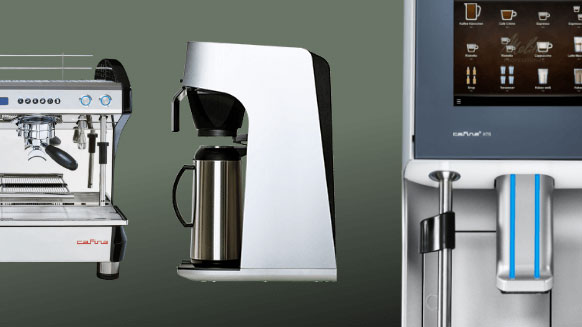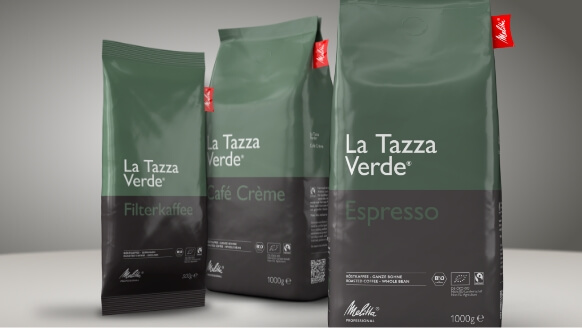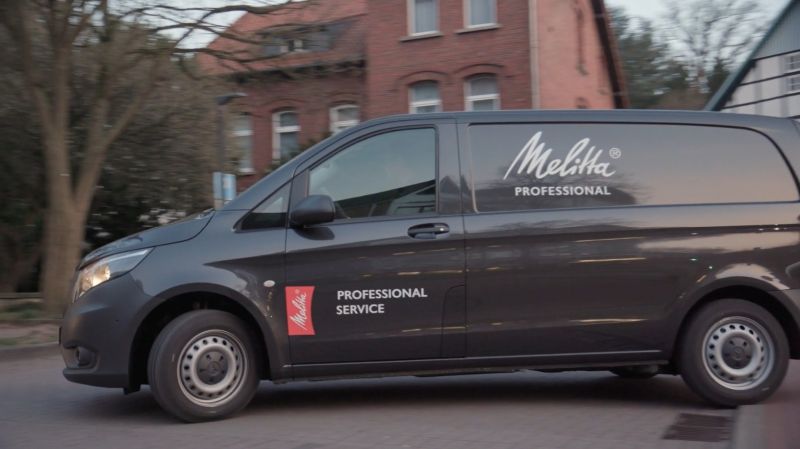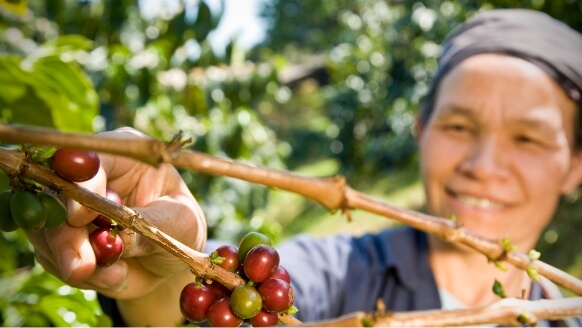Tradition, revolution and evolution high above the Isar valley
Pullach-Großhesselohe. In the course of its 200-year-old history, “WaWi” (as this rural beer garden is affectionately known) has written many stories. For example, the so-called “beer garden revolution” of 1995. And a new and evolutionary chapter has just been added. Waldwirtschaft Grosshesselohe can now rely on the new Melitta® Cafina® XT7 of long-standing coffee partner Melitta Professional Coffee Solutions to deliver tasty and professionally prepared coffee specialties. And that in duplicate.
Closing time at 9:30 p.m.? The beer garden closed every second Sunday? The new rules were intended to protect people living near Waldwirtschaft Grosshesselohe from the noise of guests arriving and departing. Instead, it led to 25,000 Munich citizens protesting loudly in the central Marienplatz and Odeonsplatz squares on May 12, 1995 – calling for the preservation of Bavaria’s beer garden tradition. Their voices were heard: the so-called “beer garden revolution” ultimately led to the Bavarian Beer Garden Ordinance of May 1999, which grants traditional beer gardens a privileged closing time of 11 p.m..
A “revolution” with consequences
It seems the “revolutionaries” had hit a nerve. In an article in the “Süddeutsche Zeitung” to mark the 20th anniversary of the protest, Sepp Krätz, who took over the WaWi in 1981, reported that the event had set a wave in motion. The importance of beer gardens began to increase and modernizations were launched. Playgrounds and a wider range of drinks made the beer gardens more attractive for families. And the disputes ultimately had a positive impact: “Beer garden visitors are now more considerate with regard to disturbing our neighbors,” Krätz reported. Traditional Bavarian beer gardens are now a recognized cultural asset which must be carefully preserved.
We have an appointment to meet Erhard Schneider, who joined the WaWi in 1987 as a cook and is now responsible for running the business. He shows us where the music is played and happily takes a seat behind the drum kit in WaWi’s Jazz Beer Garden. From soft jazz, to be-bop, swing and an “End of Summer Soul Jam”: live music is a much-loved feature of the WaWi – every day from mid-April to late September until 9:30 p.m..
Live music lifts the mood
“On a sunny Sunday, we may have some 3,500 guests,” reports Erhard Schneider. The beer garden offers about 2,500 seats without waitress service, while 240 guests can be seated in the “Wirtsgarten Platz”, the outdoor area with service. Inside the traditional building, the “Isarsaal”, “Kachelofenstube”, “Max-Seitz-Stube” and “Salettl” rooms offer space for up to 330 people all year round.
The beer specialties of the local Spaten brewery are not the only popular offering of the WaWi. The importance of food has increased steadily. The extensive range of meals on offer today accounts for about half of WaWi’s turnover. “It used to be no more than 40 percent,” estimates Schneider.
“Wagyu-style burgers” and traditional delicacies
Traditionally, guests are welcome to bring their own snacks to the beer garden. However, the grill station not only serves chicken, roast pork and short ribs, but also “Wagyu-style burgers” (with meat from Wagyu cattle held by Sepp Krätz). Naturally, there are also traditional Bavarian snacks, such as the original Munich white sausages from Schelkopf the butcher, Wawi’s own “Speckbrettl” (bacon with horseradish), “Obatzda” (spicy cheese spread), and “Isartaler Brotzeitbrettl” (mixed plate of local delicacies). The extensive menu also offers other traditional treats: such as half a crispy duck, prime boiled beef, or grilled beef fillet from regional sources. As expected, the non-meat section is slightly less extensive with crispy fried pikeperch fillet and seasonal specialties. However, the dessert menu is rich and enticing, e.g. with warm apple strudel, mascarpone and apricot dumplings, and WaWi’s “Kaiserschmarrn” (torn pancakes). The changing daily offerings of homemade cakes leads us then to the coffee menu, which offers seven variants plus chocolate and tea.
The demand for coffee and coffee specialties has increased to up to 500 cups, mugs and glasses per day, says the Managing Director and shows us two new fully automatic Melitta® Cafina® XT7s that have been in operation since the beginning of the season. With the aid of a batch preparation function, orders can first be entered via the touch display and then dispensed one after the other. The Automatic Coffee Quality System (ACS®) controls the key parameters during coffee preparation and automatically readjusts if necessary in order to consistently ensure the desired result in the cup. Two types of fresh milk and two types of cocoa can be used, while delicious milk froth – hot or cold and in varying consistencies – is always available. The daily automatic cleaning of the milk and brewing systems couldn't be easier: the Clean in Place (CIP®) system means nothing has to be dismantled.
Erhard Schneider emphasizes the convenient all-round service provided by his long-standing coffee partner. Melitta Professional offers one-stop shopping for WaWi: with the appropriate coffee beans for its coffee machines and the company’s own Technical Customer Service to ensure smooth operation. His local contact partner is the Regional Manager for Munich, Michael Büchlmeir.





